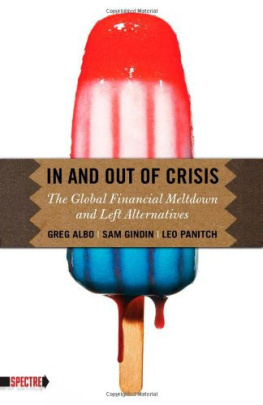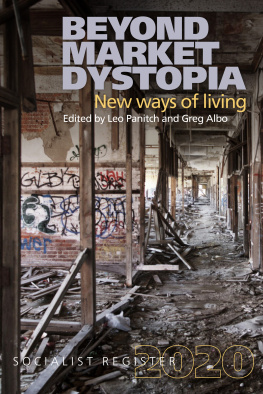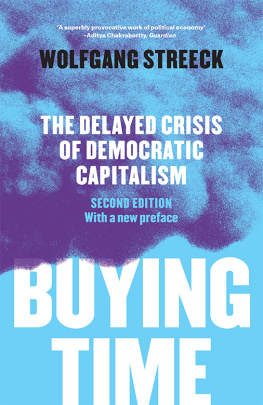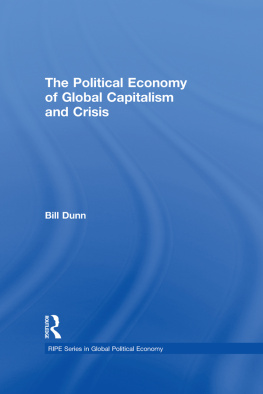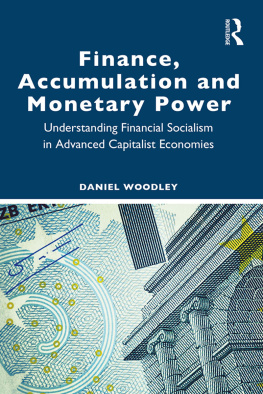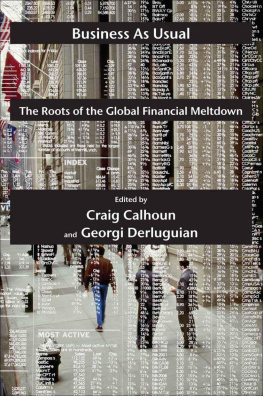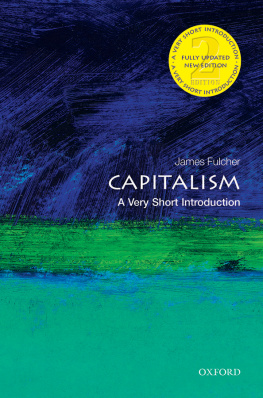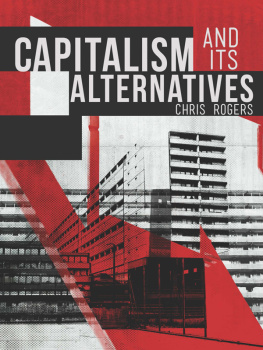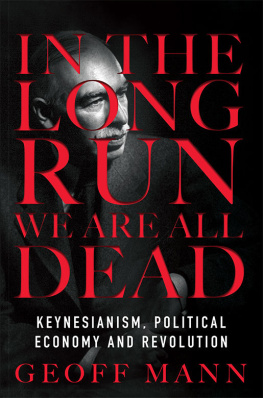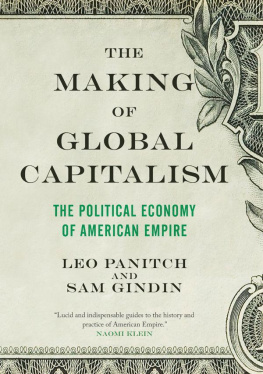INAND OUT OF CRISIS
THE GLOBAL FINANCIALMELTDOWN AND LEFT ALTERNATIVES
Greg Albo, Sam Gindin,and Leo Panitch
To our comrades in theSocialist Project
CONTENTS
StrategicConsiderations for the
PREFACE
C apitalism Is Crisis,""Capitalism Is Not Working," "Their Crisis, I Not Ours":banners like these have frequently popped up at demonstrations over the lastthree years. There can be little ^^ doubt that the financial crisis thatexploded in the summer of 2007 in the U.S. subprime mortgage market had immensepolitical as well as economic implications. For the first time since thepresidency of Ronald Reagan in the early 1980s, the neoliberalcounter-revolution he helped launch seemed to be succumbing to the accumulatingcontradictions in financial markets, growing social inequalities and falteringU.S. power in the world order. It has been some time since the slogans andanalysis of the North American Left have held such popular resonance.
The classical meaning ofcrisis is turning point. The economic turbulence and social hardships thatcrises bring with them are in evidence everywhere one looks, with a decade ofeconomic restructuring and austerity being suggested by the powers that be. Butapart from undermining the mythology of self-regulating markets that has beenso integral to the ideology of neoliberalism, has this crisis actually marked aturning point in the balance of class power and the organization of the state?Or can the political alliances and power structures that have dominated thelast decades be re-assembled in what so clearly has been a monumental crisis oftheir own making? Crises pose these kinds of sharp political questions, andthat is precisely why they are defining historical moments. The key tounderstanding crises as they are played out in history does not lie in theamount of capital destroyed in a recession, or in the volume of credit createdas capital accumulation sputters and then re-starts, or in this or that policyinnovation, but in the class politics and struggles that block, permit andexecute various strategies to advance material interests. This book willinvestigate some of these class strategies in the making of the financialcrisis and in shaping the struggles out of the crisis.
In doing so, this bookdeparts from the common tendency on the Left no less than on the Right to judgeeconomic and political developments through the prism of states versus markets,with each crisis marking an oscillation between one pole and the other. Thereare many conceptual and political traps in such a binary opposition. On the onehand, it suggests that markets can be potentially self-sufficient and thatsomehow statesas the underwriters of a vast administrative and physicalinfrastructure necessary for markets to exist at all and as guarantors ofprivate propertycan be marginalized. On the other, it proposes that the statecan compensate for market failures and act as a neutral policy mechanism tooffset private interests by governing in the public interest. Both miss thepoint that capitalist markets and capitalist states are deeply intertwined inthe class and power structures of global capitalism. This book explores, inparticular, the extent of the American state's entanglement in financialmarkets.
This is a historic momentwhen the ruling elitesfrom the financiers through the Detroit auto executivesto liberal politicianshave lost credibility. Yet labor and the Left are stillon the defensive. Being realistic today means daring to put forward somethingreally new on the political agenda. Rather than perpetuating dependence onmarkets, competition, private corporations, and the values and pressures theyrepresent, the Left needs to be organizing around an independent vision. Thealternatives needed are not technical solutions to capitalist economic crises,but political ones that challenge property rights in the name of democratic andsocial rights. This involves a transformation in Left culture, one which can'treally begin, let alone succeed unless it is part of the widest degree ofdiscussion and debate about economic and political possibilities; mobilizeswithin and across the gender, racial and ethnic diversities of working classcommunities; and develops strategies foridentifying allies and building new popular, union and community capacities.This book seeks to make a contribution to this.
As is the case with allsuch contributions, this book is a product of collective efforts. It was SashaLilley who originally suggested we put this book together and her outstandingediting work greatly improved it. The book is also in many ways the product ofthe intensive discussions we have had with our former and current graduatestudents in the political science department at York University; we areespecially grateful to Martijn Konings and Scott Aquanno for their contributionto our analysis of the subprime crisis. The ideas here have also been aired anddeveloped at events sponsored by the Socialist Register and the RosaLuxemburg Stiftung, especially at Historical Materialism and Left Forumconferences. We especially want to convey our appreciation to Pance Stojkovskifor his creative work on The Bullet, the e-bulletin of the SocialistProject, where parts of the text presented here first appeared. It is to ourcomrades in the Socialist Project, our political home in Canada, that this bookis dedicated.
GregAlbo, Sam Gindin, Leo Panitch
Toronto, January 2010
CHAPTER ONE
SURVEYINGTHE CRISIS: IS NEOLIBERALISM OVER?
E venthe briefest of tallies of the economic crisis causes one to stare in disbeliefat the casualties as the wreckage is registered. It amounted to the worstrecession in the core advanced capitalist countries since the Great Depression,involving an overall decline in world output, with over 15 million peopleor 10percent of the labor forceofficially unemployed in the United States at thebeginning of 2010. Following 1.3 million home foreclosures in 2007 in the U.S.,there were 2.3 million more in 2008, and the numbers continued to rise all theway through to 2010. Apart from the massive bailouts of the banks, the crisiswas punctuated by the collapse the $65 billion Ponzi scheme, the largest inhistory, run by Bernard L. Madoff, the former head of the NASDAQ stockexchange; the takeover by the U.S. government of AIG, the biggest insurancecompany in the world; and the largest filing ever for Chapter 11 bankruptcyprotection by General Motors in the summer of 2009. The Obama Administration's$787 billion emergency economic stabilization package was the most colossalstimulus measure in history. The U.S. budget deficit that same year, at over 12percent of GDP, was not only the highest since World War II, but is expected toremain at this historic level for years to come.
Given how central theAmerican economy is to global capitalism, the financial crisis that erupted inthe U.S. housing market in 2007 spread around the world with lightning speed.The ensuing "Great Recession" sent one economy after another crashingdown. The satirical broadsheet The Onion captured this perverse exampleof the imperial relationship between the U.S. and the rest of the world with aheadline in November 2007: "Bush Proud the U.S. Can Cause Markets aroundthe World to Collapse." Even the surging economies of East Asia, notablyChina, could not escape the economic storm brewed in the U.S. financial system.The depth and global scope of the downturn left states with little choiceinitially but to introduce massive public expenditures, not only to save thebanks but to try to stimulate the economy. Working families, experiencing thefrightening erosion of their effective savingstheir pensions and homevaluescut back on consumption in order to rebuild some future security.Private investors, seeing few opportunities and reacting with caution anduncertainty toward the future, were no longer investing in anything except safegovernment bonds.
Next page
